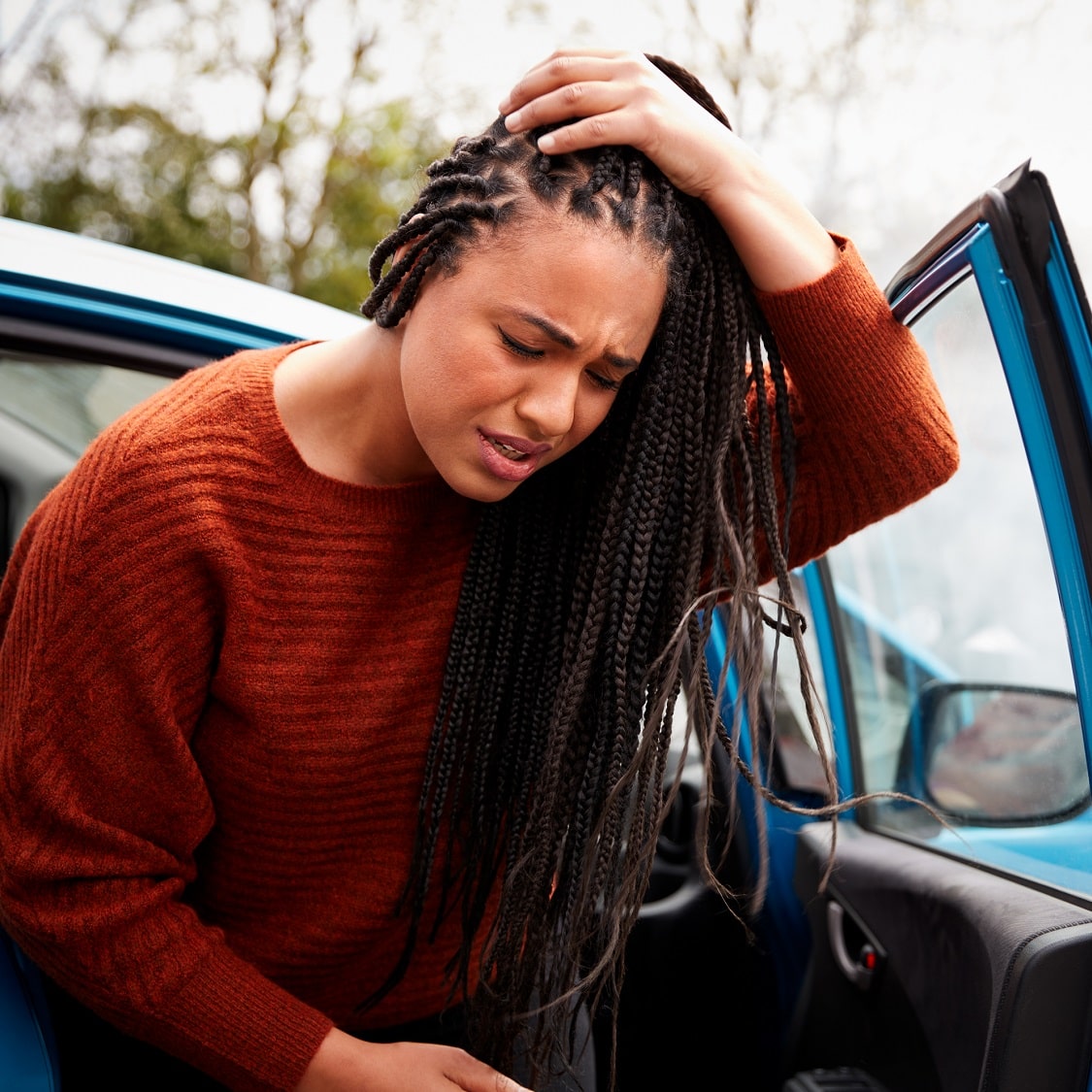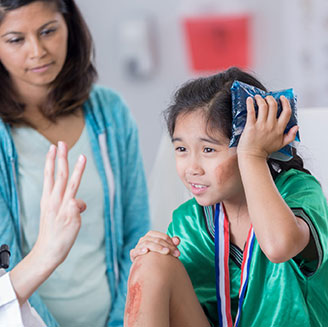What to Do if Your Child Has a Head Injury

September 24, 2021
Parents know it’s far from uncommon for kids to bump or bang their heads. But how do you know when a head injury is serious enough to require medical help or when it should be managed at home?
When to Provide Care at Home
For minor head injuries, you might notice:
- Your child was temporarily agitated or confused right away but is now alert
- Your child might have vomited, but just once
- Your child might have minor bruises or cuts on their head
- Your child is acting, speaking and moving normally
“In these cases, continue observing your child at home, but if you’re worried about him or her, you should always call your doctor to get a second opinion,” says pediatric physiatrist Nicole Marcantuono, M.D.
When to Seek Care Immediately
“If your child has hit their head and experiences any severe symptoms of a head injury, you should seek medical care right away. That might include calling 911 for an ambulance,” says pediatric neurosurgeon Catherine Mazzola, M.D.
Severe symptoms include:
- Loss of consciousness
- Drowsiness
- Dazed state
- Confusion, memory loss or loss of orientation
- Bleeding that is difficult to stop
- Vomiting more than once
- Seizure or convulsion
- Visual disturbance
- Weakness in arms or legs
- Slurred speech
“A child can develop symptoms over several days following an injury to their head,” says Dr. Marcantuono. “So it’s important to continue watching for new ones. But the good news is most children recover well after mild injuries. If your child has any symptoms following an injury to his or her head, evaluation by a medical provider is necessary.”
Next Steps & Resources:
- Meet our source:Nic ole Marcantuono, M.D.and Catherine Mazzola, M.D..
- To make an appointment with a doctor near you, call 800-822-8905 or visit our website.
The material provided through HealthU is intended to be used as general information only and should not replace the advice of your physician. Always consult your physician for individual care.
Find a doctor near me
Safely Returning to School Sports

For young athletes who were distanced from the sports they love during the height of the COVID-19 pandemic, easing restrictions now mean they are getting back on the field and among teammates. With COVID-19 still part of our landscape, there are many things for student athletes and their families to consider.
Head Trauma: Know When to Get Help

Head Trauma: Know when to seek help. Learn about symptoms, treatment, and when to get emergency care from leading doctors. Call 800-822-8905.
Find a doctor near me

When Is It Safe to Return to Sports After a Concussion?
Whether you’re a professional or recreational athlete, it can be tough to watch from the sidelines while you heal after a concussion.

Nervous About Your Kids and Contact Sports? Follow These Tips
According to the Centers for Disease Control and Prevention (CDC), more than 3.5 million children under the age of 14 receive some type of treatment for sports injuries every year.

Can Brain Injury Change Your Personality?
Brain injury may alter personality. Learn about common symptoms and available treatments from Dr. Alphonsa Thomas. Call 800-822-8905 for care.

4 Steps to Recovery After a Brain Injury
Recover from a brain injury. Dr. Greiss offers 4 steps to recovery and support at JFK Johnson Rehabilitation Institute. Call 800-822-8905.
